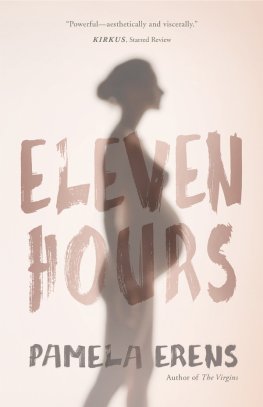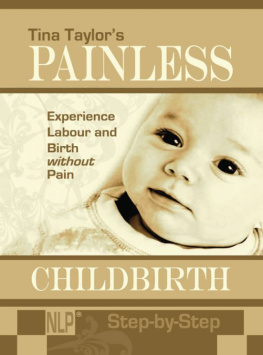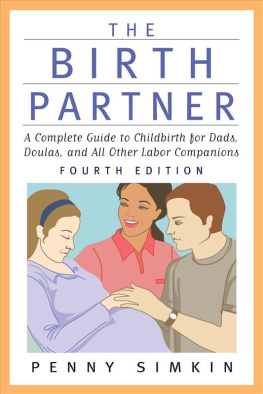Pamela Erens - Eleven Hours
Here you can read online Pamela Erens - Eleven Hours full text of the book (entire story) in english for free. Download pdf and epub, get meaning, cover and reviews about this ebook. year: 2016, publisher: Tin House, genre: Prose. Description of the work, (preface) as well as reviews are available. Best literature library LitArk.com created for fans of good reading and offers a wide selection of genres:
Romance novel
Science fiction
Adventure
Detective
Science
History
Home and family
Prose
Art
Politics
Computer
Non-fiction
Religion
Business
Children
Humor
Choose a favorite category and find really read worthwhile books. Enjoy immersion in the world of imagination, feel the emotions of the characters or learn something new for yourself, make an fascinating discovery.
- Book:Eleven Hours
- Author:
- Publisher:Tin House
- Genre:
- Year:2016
- Rating:5 / 5
- Favourites:Add to favourites
- Your mark:
- 100
- 1
- 2
- 3
- 4
- 5
Eleven Hours: summary, description and annotation
We offer to read an annotation, description, summary or preface (depends on what the author of the book "Eleven Hours" wrote himself). If you haven't found the necessary information about the book — write in the comments, we will try to find it.
Eleven Hours — read online for free the complete book (whole text) full work
Below is the text of the book, divided by pages. System saving the place of the last page read, allows you to conveniently read the book "Eleven Hours" online for free, without having to search again every time where you left off. Put a bookmark, and you can go to the page where you finished reading at any time.
Font size:
Interval:
Bookmark:
Pamela Erens
Eleven Hours
For the billions of women who have been through it,
one way or another.
ELEVEN HOURS
NO, THE GIRL says, she will not wear the fetal monitoring belt. Her birth plan says no to fetal monitoring.
These girls with their birth plans, thinks Franckline, as if much of anything about a birth can be planned. She thinks girl although she has read on the intake form that Lore Tannenbaum is thirty-one years old, a year older than Franckline herself. Caucasian, born July something, employed by the New York City Department of Education. Franckline pronounced the girls name wrong at first, said Lorie, and the girl corrected her, said there was only one syllable. Lore. Why a girl and not a woman? She arrived here all alone shortly before 9:00 AM, lugging her duffel bag, her tall body pitched to one side with the weight, no man with her, no mother, no friend (and yet a ring on the ring finger of her left hand: a silver band). No one at all, which is almost unheard of: even the homeless addicts sometimes have a man or a friend; even the prostitutes have friends who bring them in. But Lore Tannenbaum does not appear to be an addict or a prostitute. She is wearing clean sweatpants and a clean button-down shirt; her walk, once she set down the duffel, was steady, even graceful; and at the desk she produced an insurance card.
The birth plan, emerging from the packed duffel, is several pages long, many sections, the points single-spaced. There is some sort of long prologue. Lore hands it to Franckline already turned to the correct passage on page 2: I do not wish to wear a fetal monitor. The monitor will restrict her to the area near the bed and she wants to be able to move about freely.
And no IV, Lore Tannenbaum adds. They are the same height, the two women: one ample and softly built, the other more slender and taut, and pregnant as well, but not showing yet, not speaking of it her anxious secret alone.
Well, you see, explains Franckline, the hospital requires fetal monitoring, could get sued for not using the monitor However, she goes through the play-acting of leaving the labor room to consult with the charge nurse, Marina. Marina returns with her, insists absolutely: legalities, state regulations, etc.
But Dr. Elspeth-Chang
Dr. Elspeth-Chang was mistaken, says Marina. Most likely the doctor meant to say that Lore did not have to wear the monitoring belt continuously. But she has to wear it now, because she has just arrived, and then for at least fifteen minutes on the hour after that. State law.
But no IV, agrees Franckline, once Marina is gone, resisting the temptation the responsibility? to offer the arguments in favor of it: in an emergency, precious time could be wasted inserting the IV; if Lore changes her mind later (perhaps she will ask for an epidural, even though page 3 of her birth plan says I do not wish to have an epidural) if she changes her mind, dehydration may make the IV difficult to insert. Something about Lore standing eye to eye with her, her hand on her belly, tremblingly upright (unlike most patients, she does not hunch with pain and anxiety) silences Franckline. For Lore knows these facts already, she can see, has researched them all before producing her multipage, many-bulleted document.
It is twenty minutes into her hospital stay, thinks Lore, and already she is being thwarted, already opposed and harassed, by these people who want pliancy and regularity, want you to do what is easiest for them rather than what is most sensible and natural. They make you sign forms (I agree to surrender all control and absolve everyone of blame) before they will even give you a room and the privacy of your pain. Shed known that once she left her apartment she would be putting herself in the hands of strangers, others whose interests might not coincide with her own. But she did not expect to be so immediately brought down and disheartened. The two nurses, both Caribbean and with hair in braids, good cop and bad cop, one (the charge nurse) blunt, unyielding; the other quiet-voiced, smiling, trying to win her over, make her feel already tired, already beaten. She twists at the ring she wears, grown very tight over these last weeks. The charge nurse had scowled, saying Lore really ought to be going to the triage room, she didnt seem so far along. But Dr. Elspeth-Chang, who had listened to Lore on the phone, had called ahead and said Lore should be admitted, and so Lore simply stood and waited for the charge nurse to finish her grumbling.
Lets get you comfortable, says the quiet-voiced nurse, Franckline her accent is of the French-speaking islands, Haiti, maybe, or Guadeloupe as she helps her onto the hospital bed. A cross swings from a chain around her neck. Youre lucky, she told Lore as soon as she was checked in. Its very slow on the ward this morning. We can give you one of the private rooms room 7. Theres a large window looking out onto Sixth Avenue. On the deep window ledge, set back, is a potted hibiscus, its leaves a delicate pink with a deeper flame at the center. Would Lore like the bed angled this way or this way? the nurse asks. Up a bit or down?
Down, says Lore.
In the taxi Lore had held her phone in her palm and flipped the cover up and down, up and down. Not calling Diana or Marjorie, who had promised to get her to the hospital when the time came, to stay with her through the entire thing. Her bag had long been packed; it took her only minutes to leave once she decided to go. She flipped up the phone cover, dialed four digits, pressed END. The cab drove too quickly through the streets, the cabbies radio too loud with some sort of shrill, sinuous music. Lore dialed a different number her old number, which was Julia and Asas now dialed even as she knew she would not let the call ring through. A heat rose in her chest; her finger moved through the familiar sequence. It was shortly after eight. Asa, large and sloppy in the narrow pass-through kitchen, would be eating his cereal standing up; Julia would be still in bed, trying to coax herself out of her morning torpor. Imagine: Asa picking up the phone, inquiring Hello? in his rich voice, and Lore believing that he could hear in her silence the pains moving through her body, could hear it was time.
She did not want him to come. Never, never. But that he should be rising for his day, comfortable, while she would soon be twisting in pain on a hospital bed that Julia should yawn and stretch and doze again
Imagine: Julia in the bedroom, listening, suspecting, knowing that what shed set in motion had reached its end point in this child.
Theres someone I need you to meet, shed said to Lore.
Lore stopped dialing, stared out the window at the streets racing by: people with takeout coffee in gloved hands, murky morning light against the canopies of apartment buildings. Green wreaths with red baubles in storefronts, the holiday coming soon. The radio, last night, had said something about snow. Lore began picking out Dianas number once more. Then, interrupting herself, leaning forward toward the cabbie it was more like sliding her whole body sideways across the seat and then pitching herself in his direction she told him to slow down or she would have the baby right there in the back. The taxi slowed for a minute or two, then picked up speed again. The music shrilled and shrilled until Lore said, in a voice not to be argued with, Turn the damn radio off.
Why should she call Diana, why should Diana or Marjorie come? She did not know either of them that well. Diana, who taught third grade, and Marjorie, one of the kindergarten aides, had swooped in when Lore announced her pregnancy, very late, at twenty-one weeks, when the visible signs became unmistakable and arrangements had to be made for her leave. She had always been cordial with all of her colleagues but close to none. Her life, for years, had been Asa and Julia. Diana and Marjorie: their outrage on her behalf, their advice, their kale, their jargon (heroic, survivor). How Lore paced her apartment after their visits, guiltily stamping out their condescension and their pity.
Font size:
Interval:
Bookmark:
Similar books «Eleven Hours»
Look at similar books to Eleven Hours. We have selected literature similar in name and meaning in the hope of providing readers with more options to find new, interesting, not yet read works.
Discussion, reviews of the book Eleven Hours and just readers' own opinions. Leave your comments, write what you think about the work, its meaning or the main characters. Specify what exactly you liked and what you didn't like, and why you think so.










